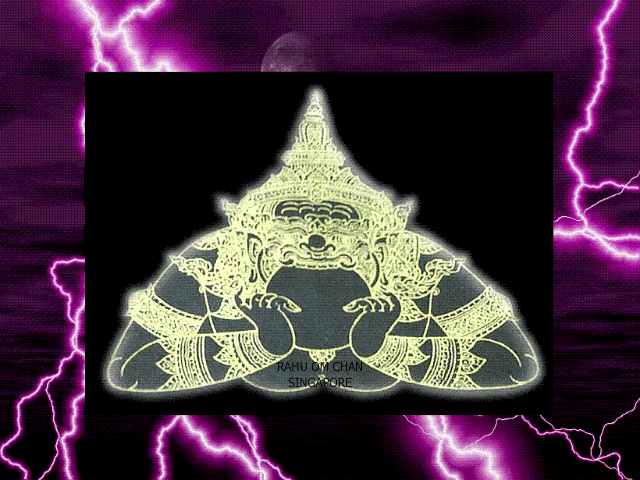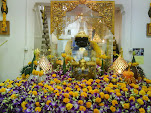Buddhist New Year
In Thailand the new year is celebrated for three days from the first full moon day in April. In Mahayana countries the new year starts on the first full moon day in January. However, the Buddhist New Year depends on the country of origin or ethnic background of the people. As for example, Chinese, Koreans and Vietnamese celebrate late January or early February according to the lunar calendar, whilst the Tibetans usually celebrate about one month later.
Songkran
This Thai Buddhist festival goes on for several days during the middle of April. People clean their houses and wash their clothes and enjoy sprinkling perfumed water on the monks, novices and other people for at least two or three days. They gather around the riverbank, carrying fishes in jars to put into the water, for April is so hot in Thailand that the ponds dry out and the fish would die if not rescued. People go to the beach or river bank with jars or buckets of water and splash each other. When everyone is happily wet they are usually entertained by boat races on the river.
Loy Krathong (Festival of Floating Bowls)
At the end of the Kathin Festival season, when the rivers and canals are full of water, the Loy Krathong Festival takes place in all parts of Thailand on the full moon night of the Twelfth Lunar month. People bring bowls made of leaves (which contain flowers) candles and incense sticks, and float them in the water. As they go, all bad luck is suppose to disappear. The traditional practice of Loy Krathong was meant to pay homage to the holy footprint of the Buddha on the beach of the Namada River in India.
The Ploughing Festival
In May, when the moon is half-full, two white oxen pull a gold painted plough, followed by four girls dressed in white who scatter rice seeds from gold and silver baskets. This is to celebrate the Buddha's first moment of enlightenment, which is said to have happened when the Buddha was seven years old, when he had gone with his father to watched the ploughing. (Known in Thailand as Raek Na)
The Elephant Festival
The Buddha used the example of a wild elephant which, when it is caught, is harnessed to a tame one to train. In the same way, he said, a person new to Buddhism should have a special friendship of an older Buddhist. To mark this saying, Thais hold an elephant festival on the third Saturday in November.
Ulambana (Ancestor Day)
Is celebrated throughout the Mahayana tradition from the first to the fifteenth days of the eighth lunar month. It is believed that the gates of Hell are opened on the first day and the ghosts may visit the world for fifteen days. Food offerings are made during this time to relieve the sufferings of these ghosts. On the fifteenth day, Ulambana or Ancestor Day, people visit cemeteries to make offerings to the departed ancestors. Many Theravadins from Cambodia, Laos and Thailand also observe this festival.
Wednesday, 26 March 2008
Subscribe to:
Post Comments (Atom)


No comments:
Post a Comment